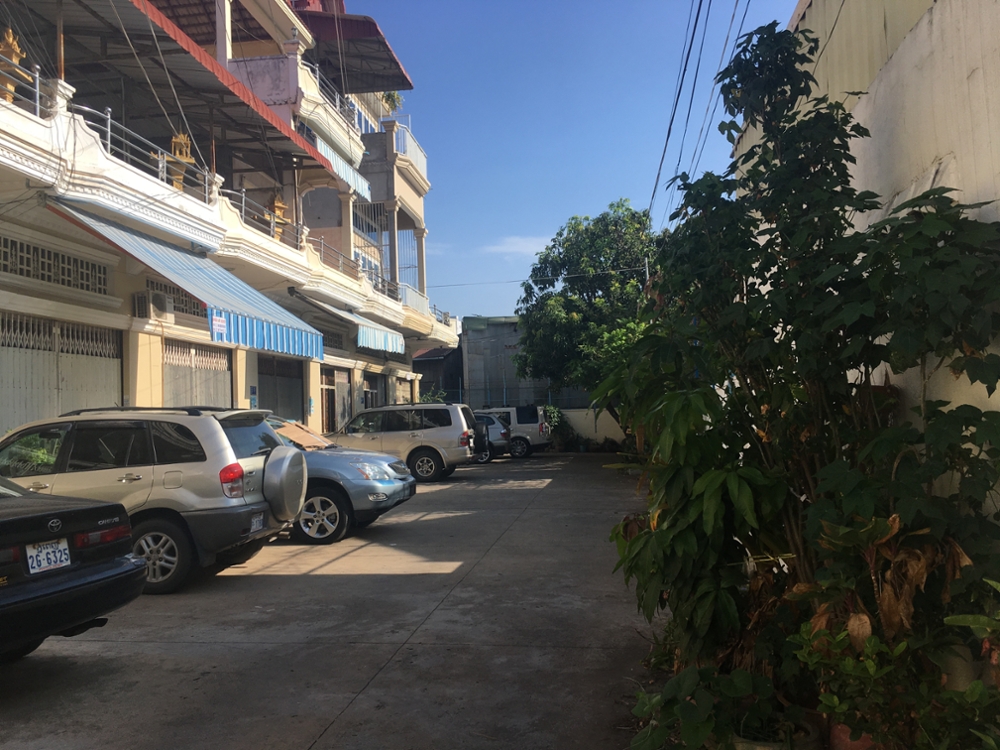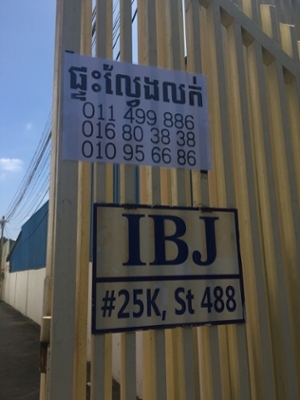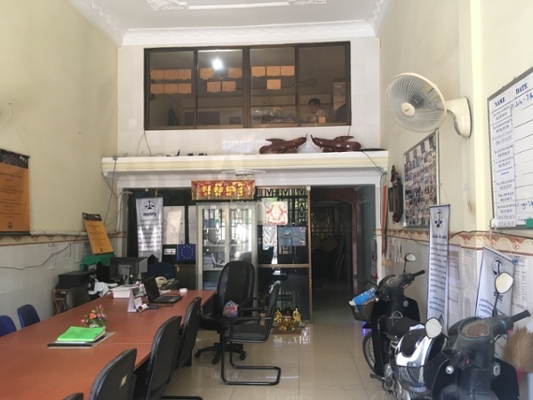Week 1: Getting to Know IBJ & Cambodia
The office of International Bridges to Justice in Phnom Penh occupies a sliver of a building in an alleyway off the busy Street 488. The atmosphere as you approach the office changes rapidly. Just steps beyond the alley gate, you forget about the buzzing motorbikes and puttering tuk-tuks that weave in choreographed chaos around whatever blocks their path. You forget about the heaping mound of pig intestines you saw at the street-food cart by your front door the previous night. You even forget about the enticing limeade you had to resist along the way, with its ice hosting an entire ecosystem. While the sun continues to beat down on your shoulders, it’s easy to tell that sanctuary is near.
Within the tall, decorative iron doors, the main room is dim and cool even without air-conditioning. Its high ceiling has ornate moulding, which I suspect to be a remnant of the country’s colonial past. Posters on prisoners’ rights in Khmer and English adorn the walls, and a Buddhist shrine sits in the corner. I’ll do my work at the conference table in this room over the course of the summer, supporting IBJ Cambodia’s mission to prevent torture and extended pre-trial detention.

The staff is small, but their impact is outsize. IBJ Appeals Court lawyer Phon Sophoes explains to me that that he has noticed a marked decrease in the use of torture as an investigative tool in Cambodia since he joined the IBJ team in 2011. IBJ has almost single-handedly affected this change using four influential techniques: 1) training criminal defenders, 2) hosting round-table discussions with police, government officials, and prosecutors, 3) campaigning for public rights awareness, and 4) ensuring legal representation for all from an early stage in the legal process through a network of lawyers across the country.
My work will consist of overseeing the implementation of a United Nations Democracy Fund grant project that aims to promote access to justice (“Ensuring the Right to Legal Representation in Cambodia”). The project will involve a combination of IBJ’s traditional methods, along with a new tech-savvy component. A Cambodian programmer has created an app that connects those accused with attorneys, like Uber for lawyers. Not only will the app facilitate universal representation, but it will also provide data on where there is an acute need for legal defense services.


This week I also began to learn about the history of Cambodia, the Khmer religion and language, and the issues faced by the country today. I’ll share a few things that struck me.
First, I learned that when the Khmer Rouge gained power in 1975, the Kampuchean Revolutionary Army ordered the entire population of Phnom Penh to evacuate the city. Even the Phnom Penh hospital was emptied of its patients. Considered hostile to the new regime, the army did not allow the urban residents to return to their homes. The relocation resulted in widespread starvation. Read more here.
Second, I learned that Hinduism and Buddhism were intertwined in the ancient history of Cambodia. The form of Buddhism practiced in Cambodia today, Theravada Buddhism, still exhibits Hindu influence. For example, the Hindu deities Vishnu, Shiva, and Hanuman show up in temple art and local crafts, like the Cambodian shadow puppet I found at Toul Tom Poung (also known as the Russian Market).
Finally, I learned about one of the factors influencing of the struggle for funding by civil society organizations in Cambodia. In 2015, the World Bank reclassified Cambodia as a “lower-middle income” country, rather than a “low income” country. Many funders only provide grants to organizations that work in low income countries. Therefore, as of 2015, Cambodian organizations became ineligible for certain kinds of funding they had relied upon in the past. IBJ is thrilled to have UNDEF funding, but is actively seeking opportunities to apply for further program support!
All in all, my first week in Phnom Penh was fascinating and engaging. I can’t wait for more.